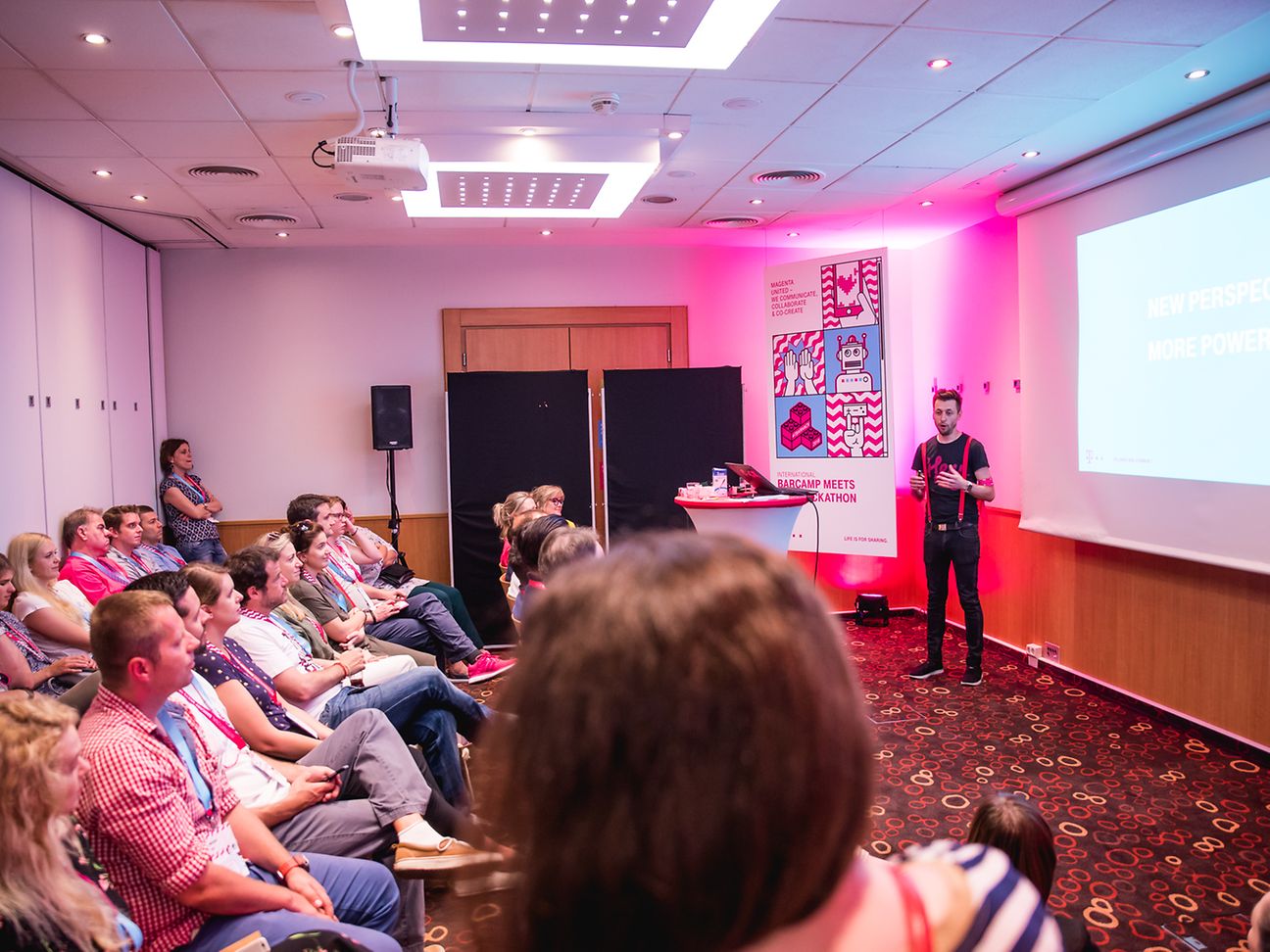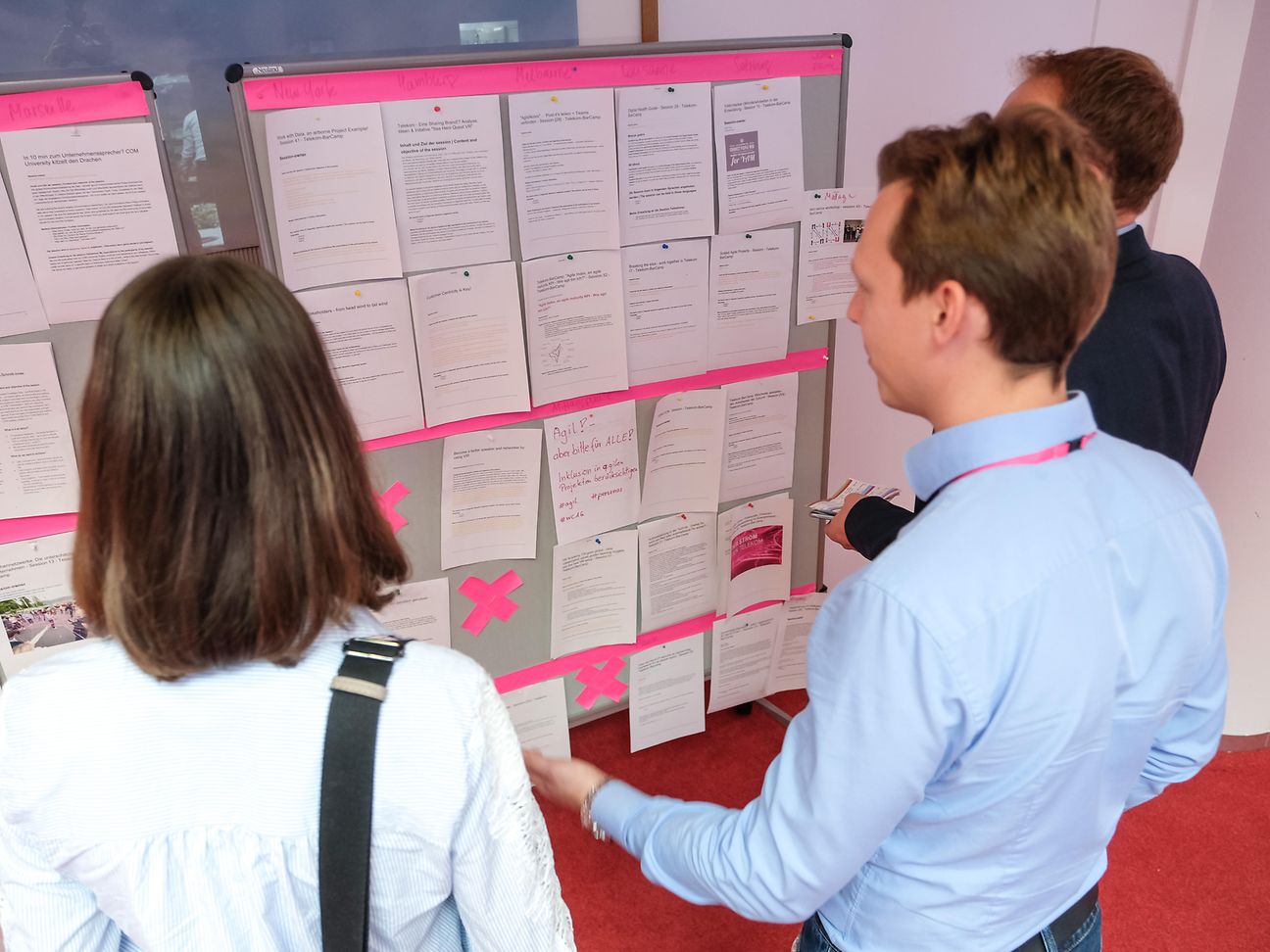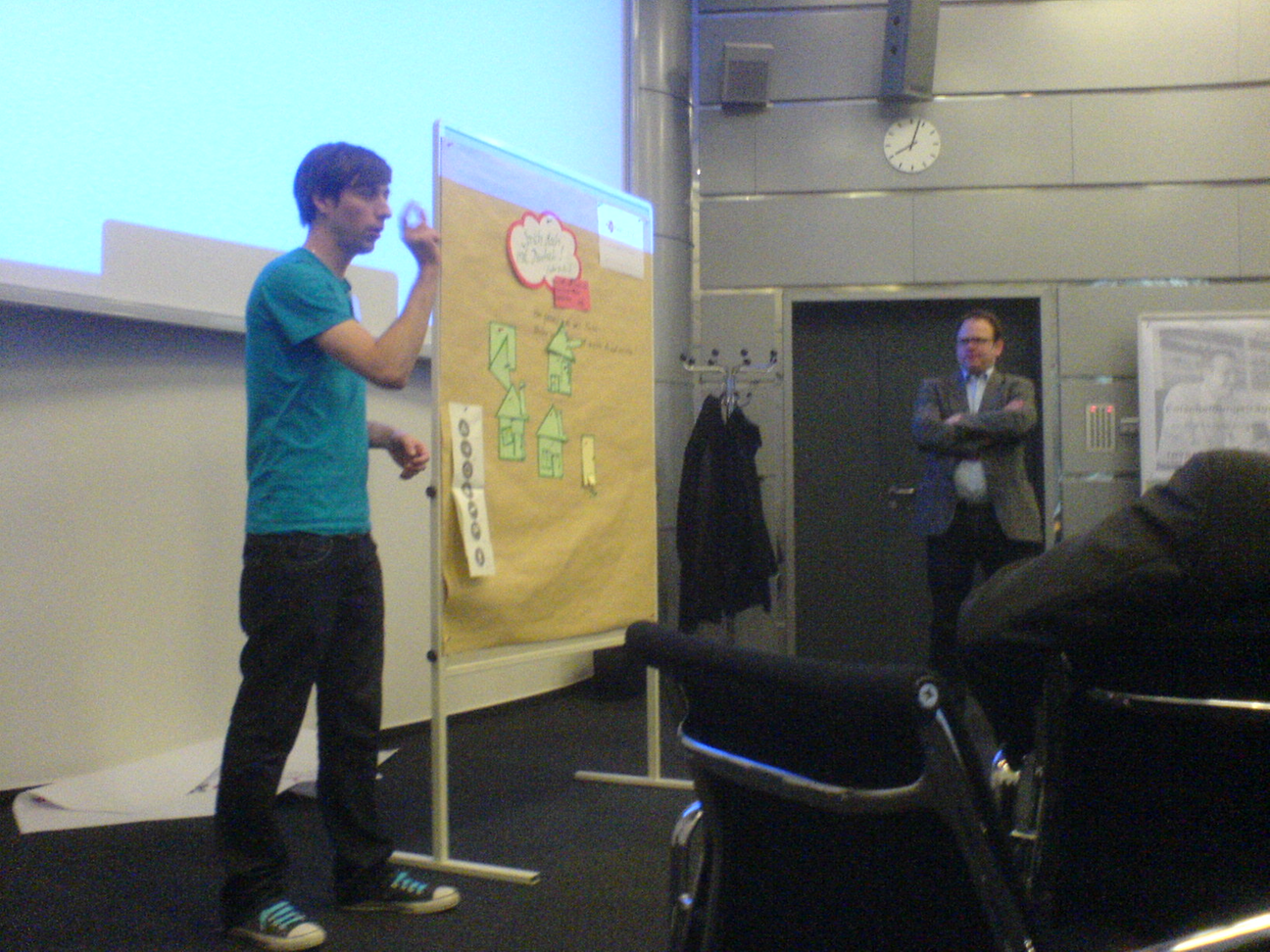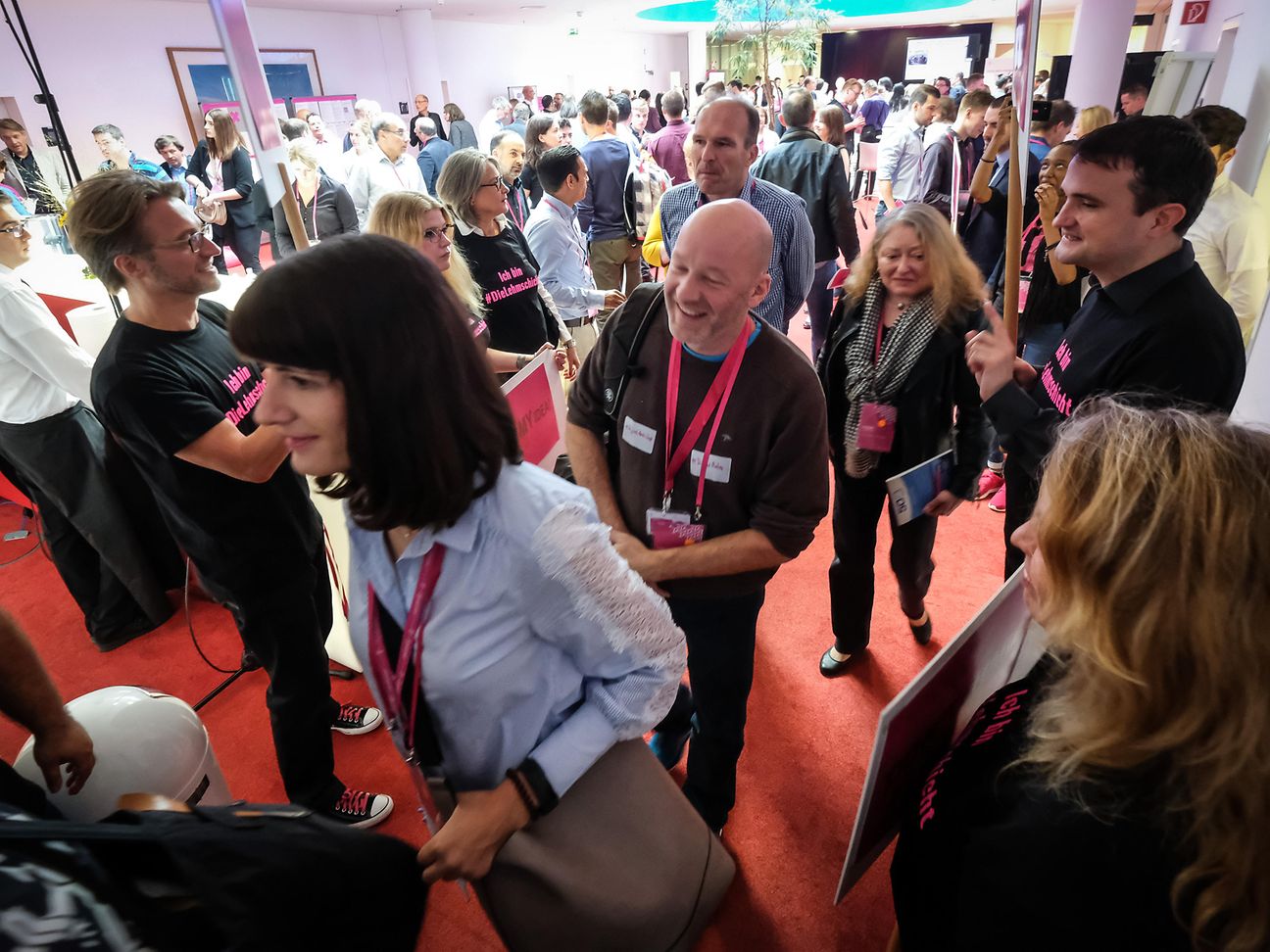

Digital Transformation bottom up. Telekom Barcamp celebrates its tenth anniversary.
I was there ten years ago when the first Barcamp was set up at Telekom. Not prescribed from above, but by the commitment of employees. The idea still lives on today and is a driving force behind the changes in our Group. A personal look back.
The Barcamp is an un-conference.
So, first of all, before the question floats too long in space. How do I explain a Barcamp? It's an un-conference. What is being talked about and who is doing the talking is not decided in a small closed group. On the contrary, the employees suggest the content. Anyone who has something to say registers. Anyone who wants to listen comes along. Only the timeslots and the rooms are fixed.
The principle hasn't changed in ten years. Only the dimensions are different. At the first Barcamp, two rooms, a few snacks and a lot of passion after work were enough. Today, hundreds of employees participate in over a dozen rooms and simultaneous events.
The Grid challenges colleagues.
The so-called grid is the map. It navigates you not only through the great variety of lectures, it also challenges the colleagues. Because the huge choice of topics forces you to make a decision. I often hear the sentence: "I would have liked to have seen much more".
But the grid is much more than just a program. It's an expression of what knowledge lies dormant in a large company like Deutsche Telekom. At a Barcamp, this knowledge wants to be shared and passed on. This is not about self-portrayal. It's about winning comrades-in-arms, inspiring colleagues and, yes, learning something yourself.
Barcamps change the perspective on one's own workplace.
But more is happening at our Barcamps. And this can only be described in words to a limited extent. I will try anyway. Visiting a Barcamp changes the perspective on one's own workplace, which is in a Corporate Company. And corporations are regarded as sluggish tanker. At a Barcamp this impression disappears. Instead of a tanker, you see a lively big city. Full of variety and zest for action.
Anyone who has been to a Barcamp usually goes back to work with new energy. Something is changing. I finish Barcamps with this impression every time. And that was also the idea ten years ago. Tackle things in order to change something. But what actually?
We wanted to understand Wikis, but we learned something completely different.
The world was still talking about Web 2.0 at the time. The advantages of digital communication were evident in major projects like Wikipedia. Only in the companies, nothing came of it. Several dozen colleagues at Telekom, who were lucky enough to get together by chance, saw it that way. I say "coincidences" because we didn't come from one department, not even from one society. There was just one thing that connected us. And there were many questions and few answers on this topic.
The first grid still exists today. It was created in a Wiki. That was one of those tools we wanted to use and understand. It quickly turned out. It's not about the digital tools at all. Rather, it's about the way we want to work together, how we want to organize knowledge in this big city called Telekom, and how we can take on the perspective of our customers faster.
The necessary culture is already there. It just needs to be strengthened.
In management books, the most important neighbour of digital transformation is cultural change. That's a big word. And it is often misunderstood by great planners as an instrument. Because something is no longer working, the organization has to be moved from A to B. The Barcamp, on the other hand, taught me that the necessary culture is already there. It does not have to be changed, it only has to be strengthened.
What sounds so simple is, of course, not easy. The Barcamp also teaches us that not everyone is moving in the same direction at the same time. It is much more like a hustle and bustle. In other words, an organization is constantly challenged by new rules and principles while the old ones still exist. The Hashtag #tbar is such an example. At the 3rd Barcamp a colleague just started to report about the lectures; via Twitter. An internal event that penetrates the outside world. That must be stopped! It never was.
A little hash day, big time.
Now the Hashtag #tbar not only documents the will to change, it also shows a new openness. It's not a company that twitters, but people who tear down boundaries. Sometimes it's small things, like not wearing your tie after the first Barcamp. Sometimes big ones, like the second International Barcamp, which brought together employees from 24 countries. Meanwhile, it is not just a Telekom Barcamp. We invite colleagues from other companies, so we get to know their perspectives.
Anyone who has been to a Barcamp experiences Telekom in a new way - just through encounters. The business case for this is difficult to calculate, I know. But the Barcamp shows that change does not have to be an order. It only has to be given the right space.




